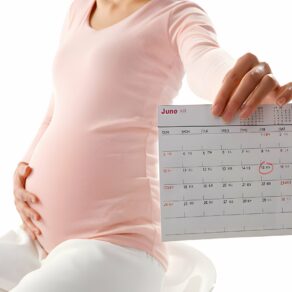Pregnancy is a transformative journey marked by numerous physical and emotional changes. Among these changes, the fluctuation of hormones plays a significant role in shaping mood and emotional well-being. Understanding How pregnancy hormones affect mood is crucial for expectant mothers to navigate this period with awareness and support. Let’s delve into this topic to shed light on the intricate relationship between hormones and mood during pregnancy.
Exploring Pregnancy Hormones
Hormones are powerful chemical messengers that regulate various bodily functions, including mood, emotions, and stress response. During pregnancy, the body undergoes a series of hormonal changes to support the growth and development of the fetus. Key hormones involved in pregnancy include estrogen, progesterone, oxytocin, and cortisol.
How Pregnancy Hormones Affect Mood
Pregnancy hormones can influence mood in several ways, impacting emotional stability, reactivity, and overall well-being. These effects vary throughout the different stages of pregnancy and can manifest differently in each woman. Some common ways in which pregnancy hormones affect mood include:
Hormonal fluctuations during pregnancy can lead to increased emotional sensitivity, causing women to experience heightened emotions in response to everyday situations. Minor stressors may feel more overwhelming, and mood swings may occur more frequently.
Changes in Stress Response
Pregnancy hormones can affect the body’s stress response, leading to increased levels of anxiety and stress in some women. High levels of cortisol, known as the stress hormone, can contribute to feelings of tension, worry, and unease during pregnancy.
Impact on Mental Health
For some women, hormonal changes during pregnancy can exacerbate or trigger mental health conditions such as depression and anxiety. Women with a history of mood disorders may be particularly susceptible to these effects and may require additional support and monitoring throughout pregnancy.
Coping Strategies and Support
While hormonal changes during pregnancy can be challenging, there are several strategies that women can employ to support their emotional well-being:
How pregnancy hormones affect mood
Seeking social support from friends, family, or support groups can provide a valuable source of encouragement and understanding during pregnancy. Connecting with other expectant mothers who are experiencing similar challenges can help normalize feelings and provide reassurance.
Self-care practices such as relaxation techniques, mindfulness, and gentle exercise can help women manage stress and maintain emotional balance during pregnancy. Taking time for oneself, practicing self-compassion, and prioritizing activities that bring joy and relaxation can contribute to overall well-being.
Professional support from healthcare providers, therapists, or counselors can be beneficial for women experiencing significant mood disturbances during pregnancy. Seeking timely intervention and treatment can help address underlying issues and prevent more severe complications.
In Conclusion
Pregnancy hormones play a significant role in shaping mood and emotional well-being throughout pregnancy. By understanding how these hormones affect mood and implementing coping strategies and support systems, women can navigate the emotional ups and downs of pregnancy with greater resilience and confidence. Seeking social support, practicing self-care, and accessing professional help when needed are essential components of maintaining emotional well-being during this transformative journey.




